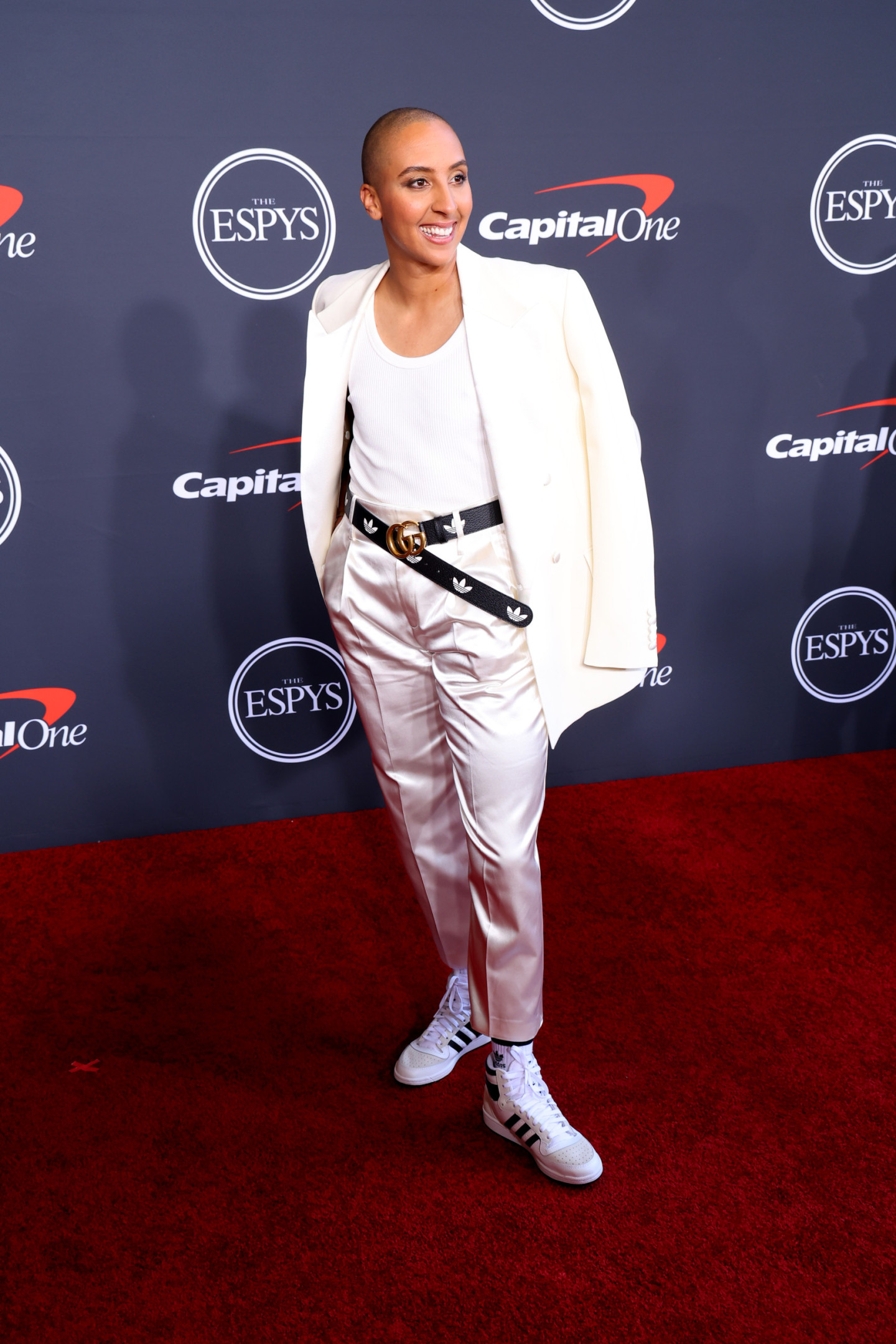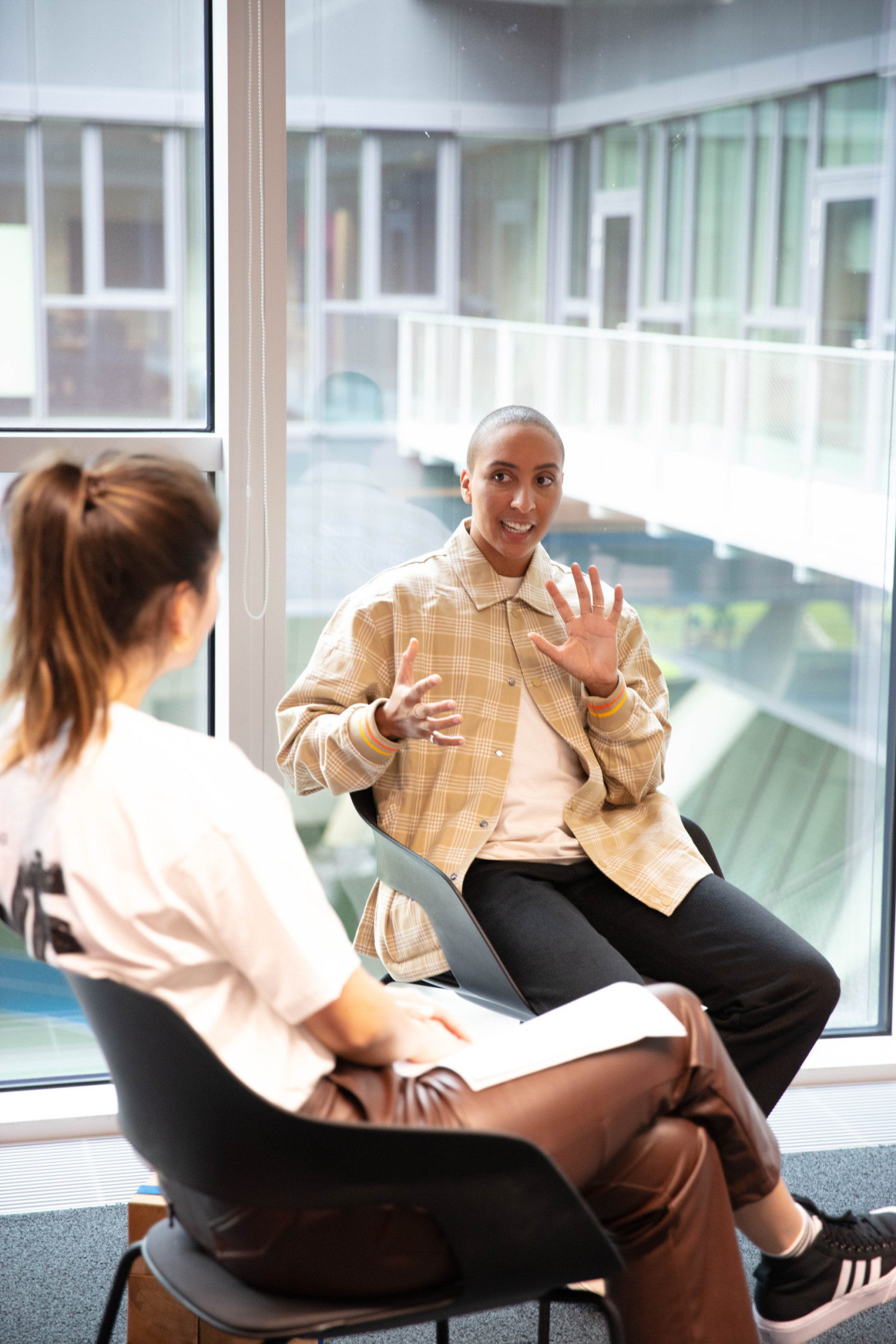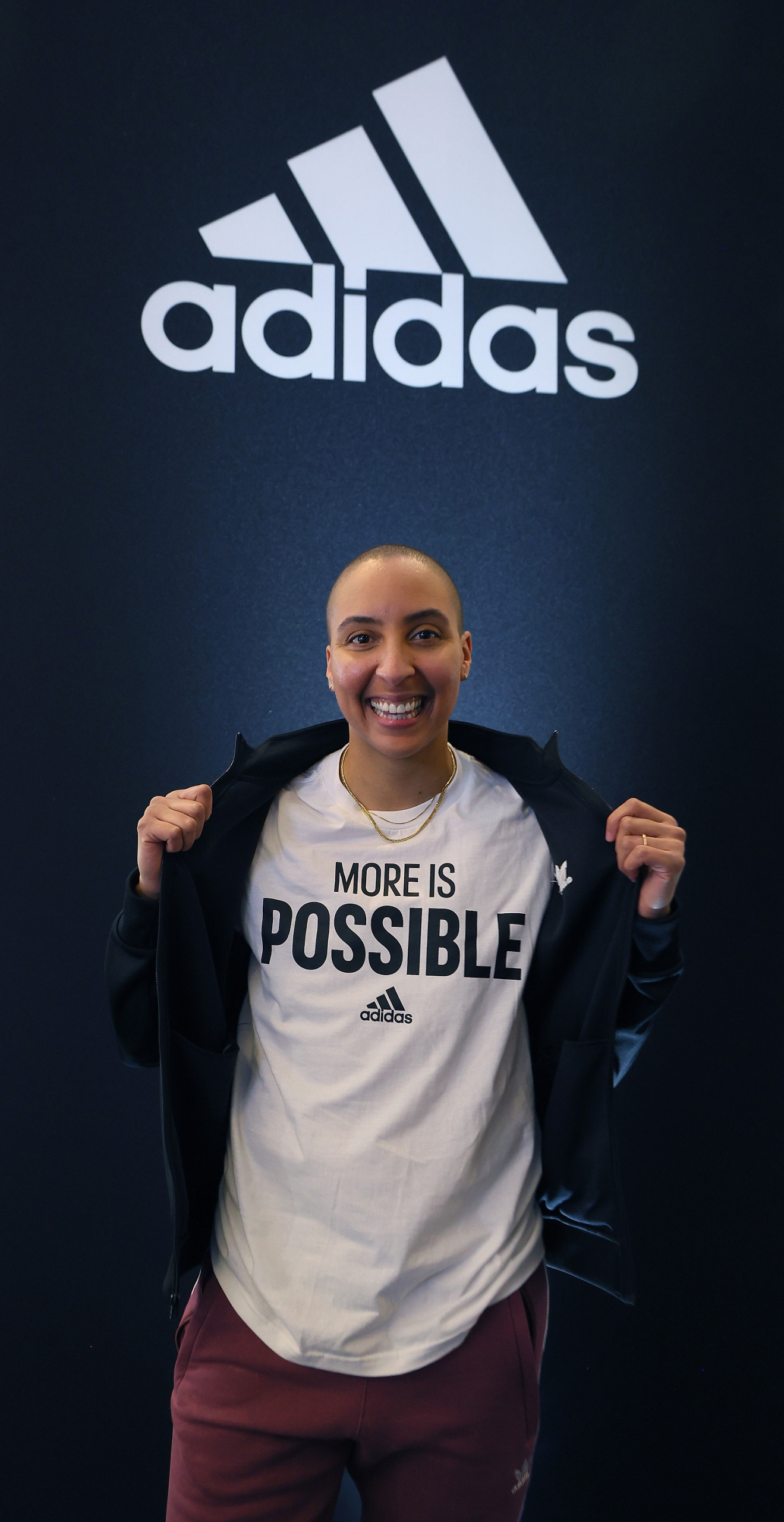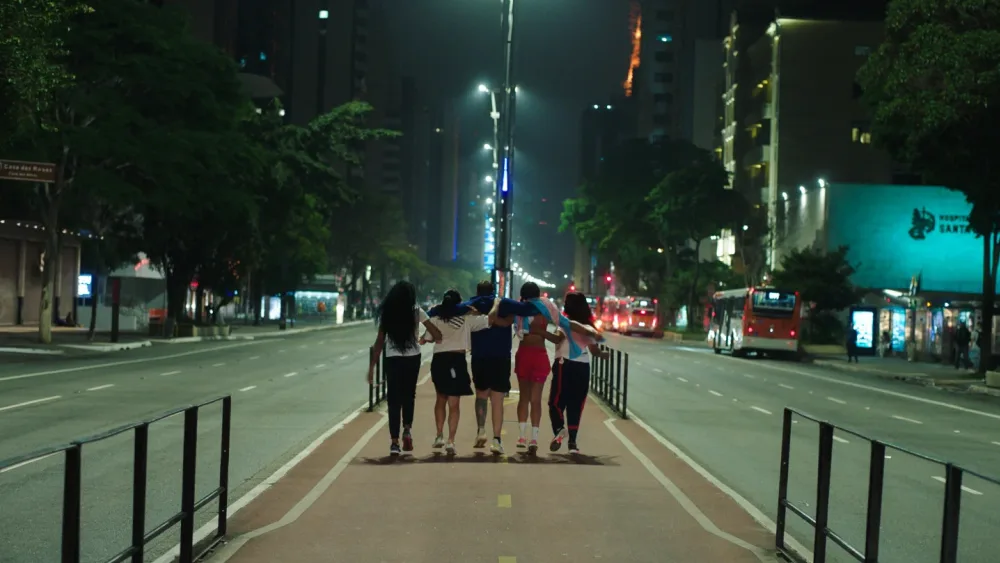
Layshia Clarendon’s Mindset on Becoming Unapologetically Yourself
Born and raised in California. The first openly non-binary WNBA basketball player. A parent. An activist. Through adversity and back, Layshia Clarendon takes us through the story of how they became who they are today.

It’s difficult enough to make a name for yourself in the sports industry, but that difficulty is heightened when you’re faced with the adversity of society and the struggles of self-discovery.
For Layshia Clarendon (he/she/them), the drive to pursue their passion is what helped them become who they are today.
Becoming Layshia Clarendon
Can you talk a little bit about how you became who you are today, the struggles you went through, the ups and downs – your life story?
“I’m a deeply spiritual person. I’ve always felt like I’ve had some guidance in my life from God, or from the universe. Before I even had the words or the relationship with a higher power, I’ve always felt that level of protection or guidance. Even my decision to go to the University of California, Berkeley, I just knew it felt right. That intuition helped guide me towards this path.
 Layshia at the 2022 ESPYs. ©Leon Bennett/Getty Images
Layshia at the 2022 ESPYs. ©Leon Bennett/Getty Images
“I’ve played basketball my whole life and so when I got a scholarship to UC Berkeley, it was a really big deal and just awesome for my family. But at the same time, I was really struggling with who I really was. I knew I was gay from a pretty young age – when I was in middle school. I knew I had attraction to the same sex.
“This was something that I hid from my family for a long time. I found a lot of safety in the sports community in the women’s basketball space because I knew I had teammates that were like me. When I went to college, I started going to this church with one of my teammates. I fell in love with it and started to build my own relationship with God. But, I was constantly asking myself “can I be gay and Christian? Is this even a thing? Is anyone even talking about this?”
“Things started falling into place. I found a really amazing church and I started to feel more confident in who I was. I realized that the thing I thought was keep me from God the most, was actually the thing that brought me the closest to God. It was the fact that I was gay, realizing God actually made me this way – made me so perfectly who I am.
You talk about coming to the realization that God made you so perfectly who you are. When did you start to become unapologetically yourself?
“It’s a lifelong journey and I don’t think you ever really arrive. You get to a certain place of happiness, then you have a different struggle. Just as I accepted myself as gay, I began to realize I was Trans. I ran from that realization for months, almost a year maybe. The thought would pop up in my head and I would be like “no.”
“I would tell myself that I’ve been through too much. I can’t do this. I can’t be in women’s sports as a Trans person.” It just felt like I couldn’t have another struggle. I’ve struggled too much. However, that was my most recent journey of self-love; when I started to embrace who I truly was.”
During this journey of self-discovery, how did you overcome the fear of embracing your true self?
“I still have fear. I think it’s easy to look at someone like me and be like, “Oh, they just put themselves out there and they’re unapologetic.” It’s like, “they’re so brave, they must not even have fear or struggle with it.” Bravery and courage is actually overcoming the fear. I think that’s an important note that the fear still exists for me.
 Layshia explains her journey of self-discovery and self-acceptance.
Layshia explains her journey of self-discovery and self-acceptance.
“Overcoming your fears will help you love the parts of you that you thought were unlovable or didn’t deserve full love. It’s a deeply spiritual and scary thing to truly love yourself in ways that you might just feel you don’t deserve. To get to this point you have to do that internal work. For me, that’s going to therapy, talking with my therapist, looking at my childhood wounds and the things that have been the hardest stuff for me to overcome.
“Ultimately, I know I deserve to be a whole person, and I refuse to cut off any part of myself. That’s been a lot of my rebellion in the world.”
Being the voice for the unheard
I wanted to dive into the Layshia Clarendon Foundation, which is an incredible way to support Trans rights. Can you talk a bit about how the foundation started?
“I saw a need. Again, rooted through my own story, first and foremost, I had top surgery in 2021. It was really difficult going through the process of getting it approved by insurance and then still having to pay money out of my pocket. As someone who is lucky enough to have access to resources, I think I paid $5000 to $6,000. Who just has that money lying around?
“I was like, “if this is this hard for me, how is anyone just affording it on a daily basis without the resources I have access to? What job do you have to have just save up enough money?” We know statistically that Trans people become more marginalized, don’t have as many job opportunities, don’t see much career advancement, and in many cases, have housing issues. So how can they afford this?
“People don’t think about what happens after surgery. Do you have time off from work? Do you have someone to pick you up from surgery? Did you have someone to help you get health insurance approval or not, or did you pay out of pocket for that full $10,000? What’s your reentry to work? What support system do you have around you for your mental health after surgery?
“And that’s how the story was born. I wanted as much opportunity and power to give the money I get from my partnership with adidas to the places that it needed to go. I want to help those who don’t have the resources to help themselves.”
You are very passionate about helping those who don’t have the voice or resources to help themselves. So, from a sports context, how do you think we can become completely inclusive in sport?
“I think putting the blinders on for is a good one. Pretending there isn’t gender and just splitting the budget in half. Women’s sports are under-invested in and that just cannot be overstated. In women’s sports we’re sold these myths that we don’t make revenue, we’re not X, Y, and Z, and we’re not getting enough ticket sales.
“Yet, we know only 4% of the coverage of sports goes towards women. 4%. So, by removing gender and focusing on the individuals in sport, that’s how we can move towards inclusivity.”
Being your own biggest supporter
As we’ve discussed, there is still a lack of inclusivity in sport, as well as many other hurdles to jump through. What advice can you give on following your dreams even when it feels impossible to get there?
“It’s always worth it in the end. It’s always worth investing in yourself. That’s actually not a selfish act. I think our culture, especially American culture, would have us to believe that, it’s really selfish to look inwardly. Especially as women or people marginalized by gender. It’s like we’re supposed to be the martyrs and the people who care about everybody else and be the ones to suffer in silence. It’s actually a very big rebellion to take up space and be like, “No, these are my needs and these are my wants.”
“That’s never going to be a thing that would disappoint you or that is not worthwhile. If you don’t believe in yourself, who else is going to do it? I think that’s one of the most important things.”
 More is possible in sport because Impossible is Nothing. ©Adam Bettcher/Getty Images
More is possible in sport because Impossible is Nothing. ©Adam Bettcher/Getty Images
I want to use this article as representation and a voice for the LGBTQ+ community. Do you have any last words of advice?
“Just know that you’re not alone. Even though it can really feel like it sometimes, I cannot overstate that you’re not. I love our community and that’s why I fight so hard for it. I want people to see that you can be out, you can be queer, you can be Trans and still be successful.
“I want people to be that role model, and be that living, breathing person who’s just living their best life. I would say that investing and yourself is always worthwhile. You deserve to be a whole person, and you should never have to cut off parts of yourself to deserve love.”



